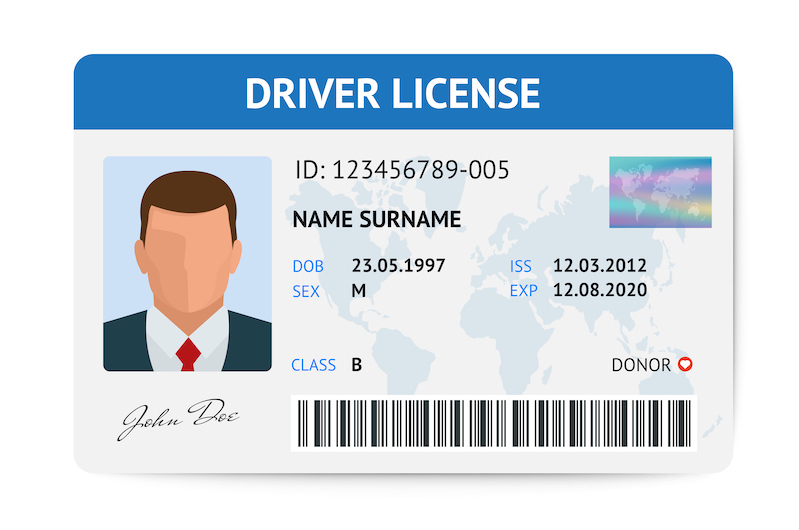
In the state of Illinois, 75% of people arrested for a DUI (driving under the influence) are men. 57% are under age 35.
Most were arrested between 11 pm and 4 am with a BAC (blood alcohol level) of .16. That’s twice the legal limit in Illinois.
A DUI conviction is no joke. It may lead to fines, jail time, and even a DMV hold on your driver’s license. All of this can make getting on with life very difficult, especially if you need to travel for any reason.
However, what does a hold on your license mean? If you’re wondering what a DMV hold on license is, here is a brief synopsis.
What is a DMV Hold on a Driver’s License?
There are a few ways you can receive a DMV hold on a license. If you hold an Illinois license and are convicted of a DUI, your driver’s privileges will be revoked.
Even if you held an Illinois driver’s license in the past and move away, you’re still subject to not being able to renew your driver’s license, or worse, having it canceled.
Other Ways to Incur a DMV Hold on License
You can also have a hold on your license if you visit Illinois and receive a DUI. The Secretary of State of Illinois can also place a hold on your license for the following reasons:
- Failure to comply suspension recall
- Failed to appear on traffic summons
- Parking suspensions
A DMV hold is even possible for anyone who doesn’t pay their court-ordered child support.
What a DMV Hold Means for You
If you’ve had a hold placed on your license, you’ll be prevented from renewing it. This hold will also appear in the federal government’s National Driver Register, so there’s no way to avoid it, even if you move out of state.
This means you won’t be able to renew or apply for a new driver’s license until the hold is released.
How to Remove a DMV Hold
If you have a hold on your license, no matter what state you live in, you’ll need to provide them with either proof, reinstatement, or clearance of your revocation in the state of Illinois.
There are two options available to have it removed.
Fill out an Application for Removal
The first option is to fill out a multiple page application to the Secretary of State and then send it through the mail. While this seems like an easier option, it’s often lengthy and frustrating.
The packet is 14 pages long. You will need to fill out both detailed paperwork and affidavits.
Provide Supporting Documents
You’ll also have to provide supporting documents. After your documentation is reviewed, the state will either approve, request more information, or deny your request, especially if anything’s missing or out of place.
A denied application makes it more difficult to be successful in future attempts. You’ll need to provide these documents:
- Completion of a treatment program
- Completed questionnaire
- Drug and alcohol evaluation
- At least three character references
- State driving abstract
- Proof of state residency
You may also need to pay a $50 filing fee. While this seems like a lot, it still may not be enough information to satisfy the Secretary of State.
Your Initial Application Documentation May Not Be Enough
You may need to provide further information, such as:
- A description of the types of treatment you’ve received
- Any prior DUI arrests
- Dates and places of those arrests
- Proof of any past alcohol and/or drug evaluations
It’s a difficult and complicated process and it’s easy to make a mistake. Even character witnesses and out-of-state evaluators can end up making a mistake on your behalf, which can result in your petition being denied.
Schedule an In-Person Hearing
Your other option, which tends to work more in your favor, is to schedule an in-person hearing.
Yes, this option will cost you more money due to travel expenses, and yes it will take more time out of your life, especially if you live out of state.
However, this is usually a more successful option.
Out-of-State Resident Challenges
No matter which way you decide to proceed, documentation matters, and Illinois is very specific about which documents are acceptable.
Most out-of-state evaluators aren’t familiar or qualified to handle these matters. That could mean your petition is denied and you have to start all over.
Extra Challenges for Those with Four or More DUI Convictions
For those individuals with four or more DUI convictions (if any of them resulted in an arrest made after January 1, 1999) you’ll have to also comply with the following steps:
If you move back to Illinois, you’ll be required to attend a new hearing. You also may be subject to the BAIID (breath alcohol ignition interlock device) and may only receive a restricted driving permit that carries with it a lifetime rule.
Provide Proof of Sobriety
You must provide proof that it’s been at least 10 years from the effective date of the most recent time your driver’s license was revoked on your Illinois record if you want the Secretary of State to life your lifetime hold.
You also have to prove that you’ve been sober for at least three years.
What Does JMQ Do?
If you’re currently living out of state, our attorney can work with your evaluator to ensure they meet Illinois’s stringent requirements. We can also assess whether they’re able to submit the documentation required for your hearing.
We’ll also advise you which route is best regarding required documents to remove a DMV hold on license.
Schedule a Free Consultation
If you have a hold on your driver’s license from the DMV, it can make life even more difficult. You’ll have to find alternative ways to get to work, run errands, or travel.
We can help remove the DMV hold, and we’re happy to provide you with a free consultation. Click here to schedule yours today.


